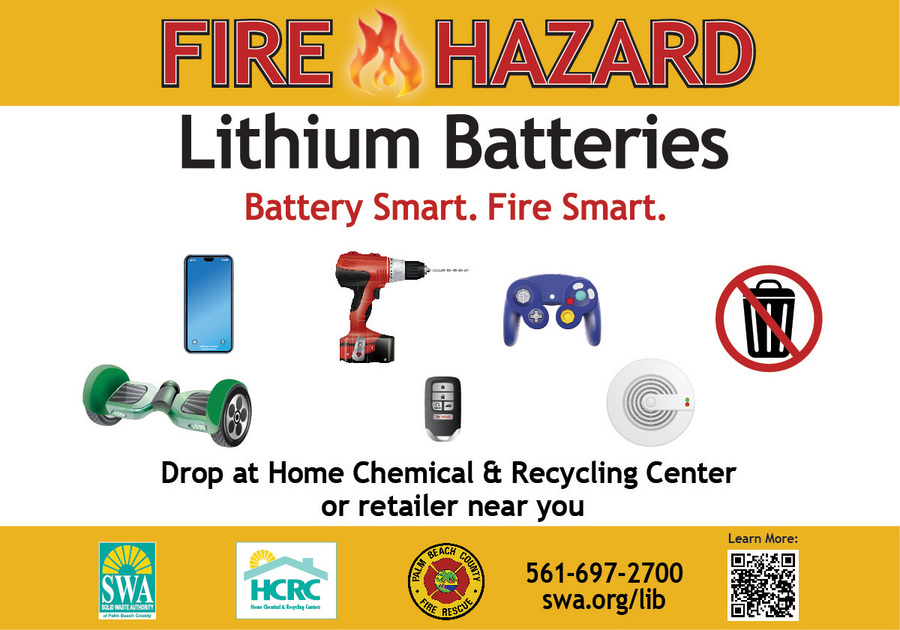The use of lithium batteries is increasing. With expanded use comes increased fire risk. When lithium batteries are improperly disposed of, they can start a fire. The solid waste industry has experienced more fires, more frequently, in recent years.
When lithium batteries are damaged – dropped, scraped, crushed, or punctured – the lithium inside becomes exposed. Lithium batteries are easily damaged if they enter the waste stream. Once in the waste stream, the lithium can come into contact with just about any other substance. Lithium combined with something as seemingly innocuous as water can produce a spark.
When this happens inside a garbage or recycling truck or solid waste facility, the resulting spark can start a fire that has devastating consequences. Because the battery is surrounded by solid waste materials, which serve as fuel, the fire quickly spreads. The fire can get out of control and burn for weeks because lithium fires are difficult to distinguish. A fire of this type has the potential to critically disrupt solid waste infrastructure.
Lithium batteries can be found in many common household products. Just a few of these are:
- Electronic devices, such as mobile phones, laptops, tablets, computer peripherals, Bluetooth devices, and smart wearables
- Toys
- Game controllers
- Electric toothbrushes
- E-bikes and e-scooters
- Power tools
- Remote car keys
- Vaping devices
- Digital cameras
- Portable power packs
- Greeting cards
- Medical equipment
- Smoke/carbon monoxide alarms
And the list is growing as lithium batteries increase in popularity.
Be a responsible consumer by properly disposing of your lithium batteries and products containing them. Never place these items inside garbage or recycling carts or bins. Instead, responsibly dispose of them by taping the terminals with non-conductive tape (preferably clear tape) and then dropping them off at one of the Solid Waste Authority of Palm Beach County’s Home Chemical & Recycling Centers (HCRC) to be recycled. There are seven convenient HCRC locations throughout the county. Most major retailers also accept batteries for free. Look for collection boxes inside the lobby or near the entrance or ask an associate for assistance.
E-bikes, e-scooters, and mobility items may have large watt-hour batteries (>300W-H) that are not accepted by the Authority. It’s recommended that you contact the manufacturer or retailer for recycling of these batteries. Electric vehicle batteries are also not accepted by the SWA. These should be brought back to the retailer or dealer.
Find an SWA Home Chemical & Recycling Center or retailer drop-off location near you.
Spread the word! Many people aren’t aware of the fire hazard associated with improper battery disposal. With consumers being one of the two primary groups in the lithium battery end-of-life management chain (the other group being recyclers), it’s important for the broad consumer public to be informed about the hazards and best practices for disposing of lithium batteries. Help us protect people and resources by spreading the word about the fire hazard posed by lithium batteries.
Learn more at swa.org/lib.


